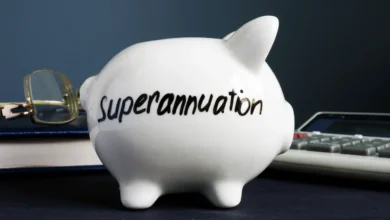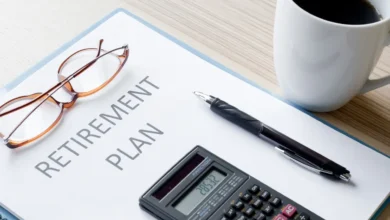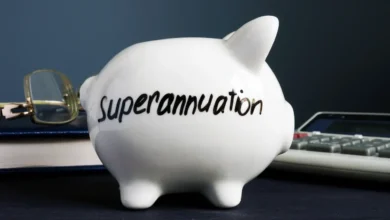Are You Missing Out on Super?
Are You Missing Out on Super? Expert Advice on Unpaid Superannuation
Superannuation is a critical part of retirement planning in Australia, but what happens when your employer isn’t paying what they should? Shockingly, one in four Australians have been underpaid super by their employers, according to a recent report. This underpayment amounts to a staggering $5 billion across 3 million workers. To dive into the details and offer advice on what you can do if you’re missing out on super, ABC Radio Melbourne’s Lisa Leong spoke with superannuation specialist and financial adviser Marco Mellado.
In this blog, we’ll explore the key takeaways from the interview, including how to check if your super is being paid, what to do if it’s not, and what steps to take if your employer is breaking the law.

The $5 Billion Super Shortfall: What’s Going On?
Marco Mellado began the interview by discussing the alarming findings that over one in four Australians have been underpaid super by their employers. “There’s some startling data that’s come out recently showing that around $5 billion in super was underpaid or not paid at all to about 3 million workers in just one financial year,” he said. This amounts to an average of $1,800 per employee.
The Australian Tax Office (ATO) has been working to recover unpaid super, but unfortunately, their success rate is low. “Only about 15-20% of that missing super gets recovered,” Marco noted. This means that many workers are missing out on super payments they’re legally entitled to, which can have a serious impact on their financial security in retirement.
Who’s Most Affected by Unpaid Super?
Certain groups of workers are more vulnerable to super underpayment. According to Marco, the people most affected include:
- Women in insecure or part-time employment.
- Young workers who may not be fully aware of their super entitlements.
- Migrant workers, particularly those in high-risk industries.
- Workers in industries with high levels of insolvency, such as hospitality, retail, and construction.
“These groups are already facing financial challenges, and to add unpaid super to the mix makes it even harder for them,” Marco explained.
How to Check if You’re Getting Paid Super
It’s easy to lose track of whether your super is being paid, especially since employers can make super contributions quarterly, which doesn’t always align with your pay cycle. Marco’s advice is straightforward: “Go to your super fund and check your contributions. You can request a history of contributions over the last 12 months or the entire period of your employment.”
You can also check your super through the ATO’s online services by logging into your MyGov account. Your employer should be paying 11.5% of your gross salary into your super fund, so if you notice missing contributions, it’s important to take action.
What to Do if Your Employer Isn’t Paying Super
If you find that your super contributions aren’t being made, Marco suggests starting by having a conversation with your employer. “It could be an honest mistake or a case of the super going to a different fund that you’re not aware of,” he said. If that doesn’t resolve the issue, it’s time to take further action.
The ATO has a tool on their website where you can report unpaid super, and they have the power to recover the unpaid amount on your behalf. Marco also suggests seeking legal counsel if the amount is significant, as it may be necessary to involve a lawyer to ensure you get the money you’re owed.
Super and Contractors: What You Need to Know
A common question from listeners was about the relationship between super and different types of employment, particularly contractors. Marco clarified that if you’re a contractor, you’re generally responsible for paying your own super, unlike employees who are entitled to have their employer contribute 11.5% of their gross salary.
However, the line can sometimes blur if a contractor is working in a situation where they’re treated more like an employee. “If everything is very employee-like, then it becomes a bit grey,” Marco explained. In such cases, it’s important to clarify your employment status with your employer from the outset.
Reporting Unpaid Super: Is There a Time Limit?
One listener asked if there’s a statute of limitations on unpaid super. According to Marco, while there’s no strict time limit, the longer you leave it, the harder it becomes to recover the money. “Employers are supposed to keep accurate records of super payments, but if years have passed, tracking down those records can become difficult,” he said.
The best course of action is to report unpaid super as soon as you notice it. The ATO can step in to help, but it’s essential to act quickly to increase your chances of recovering the money.

Super for Under-18s: What Are the Rules?
Another question raised was about super for workers under 18. Marco clarified that under-18s are entitled to super if they work more than 30 hours a week. If they work fewer than 30 hours, their employer is not required to make super contributions. However, parents can set up super accounts for minors and contribute to them to help build their savings from a young age.
What Happens if Your Employer Doesn’t Pay Super?
When an employer fails to pay super, they face serious consequences. Not only will they have to repay the unpaid amount, but they’ll also need to pay interest on it (at a rate of 11%) and an administration fee. On top of that, these repayments are not tax-deductible, making it a costly mistake for the employer.
Most employers do the right thing, but for those who don’t, the penalties can add up quickly. “It’s in their best interest to pay super on time, not just for their employees but to avoid financial penalties themselves,” Marco said.
The Role of Unions in Recovering Unpaid Super
For workers who are union members, their union can be a valuable resource in recovering unpaid super. As one listener pointed out, unions often have the experience and connections needed to take on employers who are withholding super contributions.
“If you’re in a union, absolutely use them to help you get your super back,” Marco agreed. In addition to the ATO and the Financial Ombudsman, unions can provide additional support and representation in disputes with employers.
Conclusion: Protecting Your Super
Superannuation is a critical part of ensuring financial security in retirement, and it’s essential that you receive every cent you’re entitled to. Unfortunately, with one in four Australians being underpaid super by their employers, it’s clear that not everyone is getting what they deserve.
If you’re concerned that your super contributions aren’t being paid, start by checking with your super fund. If you find missing payments, take action immediately—talk to your employer, report it to the ATO, and seek legal advice if necessary. The longer you wait, the harder it becomes to recover what you’re owed.
For more expert advice on superannuation and other financial matters, be sure to listen to the full segment with Marco Mellado on ABC Radio Melbourne or check out our financial podcasts on the ABC website. Stay informed and protect your financial future!





